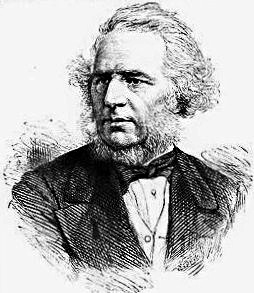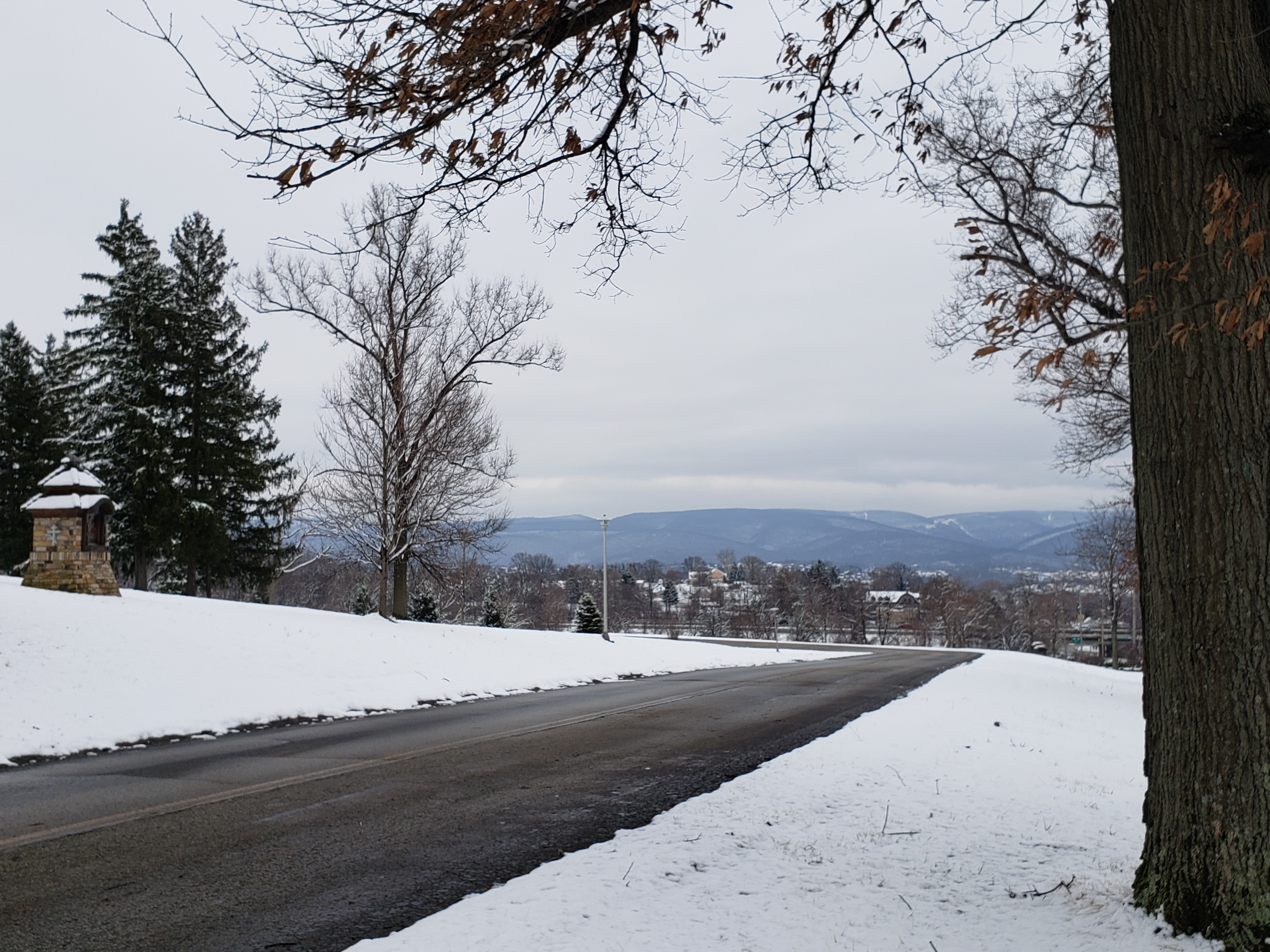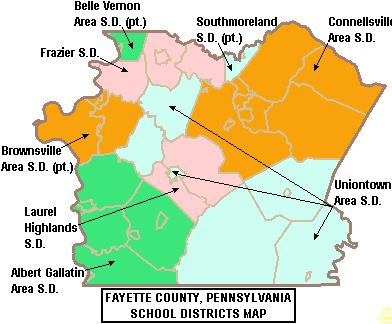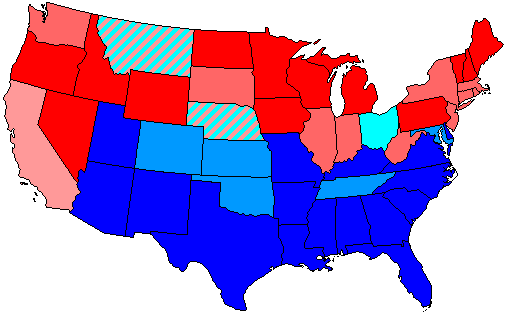|
Robert F. Hopwood
Robert Freeman Hopwood (July 24, 1856 – March 1, 1940) was a Republican member of the U.S. House of Representatives from Pennsylvania. Biography Robert F. Hopwood was born in Uniontown, Pennsylvania. He studied under private teachers. He studied law, was admitted to the bar in 1879 and commenced practice in Uniontown. He was chairman of the Republican county committee. He served as attorney for Uniontown Borough from 1881 to 1891, solicitor of Fayette County, Pennsylvania, from 1894 to 1912, and president of the Uniontown Hospital from 1905 to 1920. Hopwood was elected as a Republican to the Sixty-fourth Congress. He was an unsuccessful candidate for reelection in 1916. He resumed the practice of law in Uniontown. He died at his winter home in St. Petersburg, Florida St. Petersburg is a city in Pinellas County, Florida, United States. As of the 2020 census, the population was 258,308, making it the fifth-most populous city in Florida and the second-largest city in t ... [...More Info...] [...Related Items...] OR: [Wikipedia] [Google] [Baidu] |
Pennsylvania
Pennsylvania (; ( Pennsylvania Dutch: )), officially the Commonwealth of Pennsylvania, is a state spanning the Mid-Atlantic, Northeastern, Appalachian, and Great Lakes regions of the United States. It borders Delaware to its southeast, Maryland to its south, West Virginia to its southwest, Ohio to its west, Lake Erie and the Canadian province of Ontario to its northwest, New York to its north, and the Delaware River and New Jersey to its east. Pennsylvania is the fifth-most populous state in the nation with over 13 million residents as of 2020. It is the 33rd-largest state by area and ranks ninth among all states in population density. The southeastern Delaware Valley metropolitan area comprises and surrounds Philadelphia, the state's largest and nation's sixth most populous city. Another 2.37 million reside in Greater Pittsburgh in the southwest, centered around Pittsburgh, the state's second-largest and Western Pennsylvania's largest city. The state's su ... [...More Info...] [...Related Items...] OR: [Wikipedia] [Google] [Baidu] |
Pennsylvania's 23rd Congressional District
Pennsylvania's 23rd congressional district was one of Pennsylvania's districts of the United States House of Representatives The United States House of Representatives, often referred to as the House of Representatives, the U.S. House, or simply the House, is the Lower house, lower chamber of the United States Congress, with the United States Senate, Senate being .... History This district was created in 1833. The district was eliminated in 1993. List of members representing the district References * * Congressional Biographical Directory of the United States 1774–present {{DEFAULTSORT:Pennsylvania's 23rd Congressional District 23 Former congressional districts of the United States Constituencies established in 1833 1833 establishments in Pennsylvania Constituencies disestablished in 1993 1993 disestablishments in Pennsylvania ... [...More Info...] [...Related Items...] OR: [Wikipedia] [Google] [Baidu] |
Wooda Nicholas Carr
Wooda Nicholas Carr (February 6, 1871 – June 28, 1953) was a Democratic member of the U.S. House of Representatives from Pennsylvania. His son was the mystery novelist John Dickson Carr. Wooda N. Carr was born in Allegheny City, Pennsylvania (now a part of Pittsburgh, Pennsylvania). He attended the public schools and Madison College. He graduated from Monongahela College in Pennsylvania, in 1891. He was editor of the '' Uniontown News'' and the '' Uniontown Democrat'' in 1892. He studied law, was admitted to the Pennsylvania bar in 1895 and commenced practice in Uniontown. He was a delegate to the Democratic State conventions in 1898, 1899, 1900, and 1904. Carr was elected as a Democrat to the Sixty-third Congress. He was an unsuccessful candidate for reelection in 1914. He resumed the practice of law and was appointed postmaster of Uniontown, Pennsylvania Uniontown is a city in Fayette County, Pennsylvania, United States, southeast of Pittsburgh and part of the G ... [...More Info...] [...Related Items...] OR: [Wikipedia] [Google] [Baidu] |
Bruce Foster Sterling
Bruce Foster Sterling (September 28, 1870 – April 26, 1945) was a Democratic member of the U.S. House of Representatives from Pennsylvania. Biography Bruce Foster Sterling was born in Masontown, Pennsylvania. He attended the public schools of Masontown and the California State Normal School in California, Pennsylvania. He graduated from West Virginia University in Morgantown, West Virginia, in 1895. He studied law, was admitted to the bar in 1896 and commenced practice in Uniontown, Pennsylvania. He served as a member of the Pennsylvania State House of Representatives in 1906 and was a delegate to the Democratic National Conventions in 1912, 1920 and 1924. Sterling was elected as a Democrat to the Sixty-fifth Congress. He was an unsuccessful candidate for reelection in 1918. He resumed the practice of law. He was elected register of wills and clerk of the orphans court of Fayette County, Pennsylvania Fayette County is a county in the Commonwealth of Pennsylvania. I ... [...More Info...] [...Related Items...] OR: [Wikipedia] [Google] [Baidu] |
Uniontown, Pennsylvania
Uniontown is a city in Fayette County, Pennsylvania, United States, southeast of Pittsburgh and part of the Greater Pittsburgh Region. The population was 10,372 at the 2010 census, down from 12,422 at the 2000 census. It is the county seat and largest city of Fayette County. History Uniontown was founded by Henry Beeson on July 4, 1776. This was, coincidentally, the same date the United States Declaration of Independence was adopted. The National Road, also known as the Cumberland Road, was routed through Uniontown in the early 19th century, and the town grew along with the road (now US 40). southeast of Uniontown is Fort Necessity, built by George Washington George Washington (February 22, 1732, 1799) was an American military officer, statesman, and Founding Father who served as the first president of the United States from 1789 to 1797. Appointed by the Continental Congress as commander of th ... during the French and Indian War (part of the international Seven Yea ... [...More Info...] [...Related Items...] OR: [Wikipedia] [Google] [Baidu] |
Republican Party (United States)
The Republican Party, also referred to as the GOP ("Grand Old Party"), is one of the two major contemporary political parties in the United States. The GOP was founded in 1854 by anti-slavery activists who opposed the Kansas–Nebraska Act, which allowed for the potential expansion of chattel slavery into the western territories. Since Ronald Reagan's presidency in the 1980s, conservatism has been the dominant ideology of the GOP. It has been the main political rival of the Democratic Party since the mid-1850s. The Republican Party's intellectual predecessor is considered to be Northern members of the Whig Party, with Republican presidents Abraham Lincoln, Rutherford B. Hayes, Chester A. Arthur, and Benjamin Harrison all being Whigs before switching to the party, from which they were elected. The collapse of the Whigs, which had previously been one of the two major parties in the country, strengthened the party's electoral success. Upon its founding, it supported c ... [...More Info...] [...Related Items...] OR: [Wikipedia] [Google] [Baidu] |
Fayette County, Pennsylvania
Fayette County is a county in the Commonwealth of Pennsylvania. It is located in southwestern Pennsylvania, adjacent to Maryland and West Virginia. As of the 2020 census, the population was 128,804. Its county seat is Uniontown. The county was created on September 26, 1783, from part of Westmoreland County and named after the Marquis de Lafayette. Fayette County is part of the Pittsburgh, PA Metropolitan Statistical Area. The southern border of Fayette County is the southern border of Pennsylvania at both the Pennsylvania–Maryland state line (the Mason–Dixon line) and the Pennsylvania–West Virginia state line. History The first Europeans in Fayette County were explorers, who had used an ancient American Indian trail that bisected the county on their journey across the Appalachian Mountains. In 1754, when control of the area was still in dispute between France and Great Britain, 22-year-old George Washington fought against the French at the Battle of Jumonville Glen ... [...More Info...] [...Related Items...] OR: [Wikipedia] [Google] [Baidu] |
64th United States Congress
The 64th United States Congress was a meeting of the legislative branch of the United States federal government, composed of the United States Senate and the United States House of Representatives. It met in Washington, DC from March 4, 1915, to March 4, 1917, during the third and fourth years of Woodrow Wilson's presidency. The apportionment of seats in the House of Representatives was based on the Thirteenth Census of the United States in 1910. The Democrats maintained a majority in both chambers (albeit reduced in the House), and along with President Wilson also maintained an overall federal government trifecta. Major events *June 9, 1915: (Prelude to World War I):U.S. Secretary of State William Jennings Bryan resigned over a disagreement regarding the nation's handling of the RMS Lusitania sinking. *July 24, 1915: The steamer SS Eastland capsized in central Chicago, with the loss of 844 lives. *July 28, 1915: The United States occupation of Haiti began. *August 5–Augu ... [...More Info...] [...Related Items...] OR: [Wikipedia] [Google] [Baidu] |
United States House Election, 1916
1916 United States House of Representatives elections were held, coinciding with the re-election of President Woodrow Wilson. Wilson eked out a narrow re-election, but his Democratic Party lost seats to the Republican Party. Wilson's hybrid approach, which injected a progressive element into Democratic policies, had proved to be dissatisfying to much of the nation. International affairs also became important in the traditionally non-interventionist United States, as voters attempted to determine which party would be best served to keep the nation from entering The Great War. Republicans won a plurality of seats in the 1916 election. However, when the 65th Congress convened in April 1917, the Democrats narrowly maintained control of the House, forming an alliance with third-party ( Progressive and Socialist) members. Not since the 34th Congress (1855–1857) had the party with the most seats not been part of the ruling government. This Congress is the last example to date of a ... [...More Info...] [...Related Items...] OR: [Wikipedia] [Google] [Baidu] |
Bruce F
The English language name Bruce arrived in Scotland with the Normans, from the place name Brix, Manche in Normandy, France, meaning "the willowlands". Initially promulgated via the descendants of king Robert the Bruce (1274−1329), it has been a Scottish surname since medieval times; it is now a common given name. The variant ''Lebrix'' and ''Le Brix'' are French variations of the surname. Actors * Bruce Bennett (1906–2007), American actor and athlete * Bruce Boxleitner (born 1950), American actor * Bruce Campbell (born 1958), American actor, director, writer, producer and author * Bruce Davison (born 1946), American actor and director * Bruce Dern (born 1936), American actor * Bruce Gray (1936–2017), American-Canadian actor * Bruce Greenwood (born 1956), Canadian actor and musician * Bruce Herbelin-Earle (born 1998), English-French actor and model * Bruce Jones (born 1953), English actor * Bruce Kirby (1925–2021), American actor * Bruce Lee (1940–1973), martial ... [...More Info...] [...Related Items...] OR: [Wikipedia] [Google] [Baidu] |
1856 Births
Events January–March * January 8 – Borax deposits are discovered in large quantities by John Veatch in California. * January 23 – American paddle steamer SS ''Pacific'' leaves Liverpool (England) for a transatlantic voyage on which she will be lost with all 186 on board. * January 24 – U.S. President Franklin Pierce declares the new Free-State Topeka government in "Bleeding Kansas" to be in rebellion. * January 26 – First Battle of Seattle: Marines from the suppress an indigenous uprising, in response to Governor Stevens' declaration of a "war of extermination" on Native communities. * January 29 ** The 223-mile North Carolina Railroad is completed from Goldsboro through Raleigh and Salisbury to Charlotte. ** Queen Victoria institutes the Victoria Cross as a British military decoration. * February ** The Tintic War breaks out in Utah. ** The National Dress Reform Association is founded in the United States to promote "rational" dress for ... [...More Info...] [...Related Items...] OR: [Wikipedia] [Google] [Baidu] |




